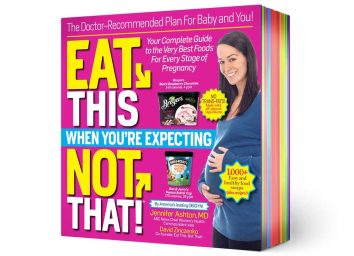15 Ways to Stay Fertile in Your 30s

There might be nothing tougher on a marriage than infertility when you’d rather be officially expecting a baby—the onslaught of hormone treatments, the sex on demand (sounds fun, but it really isn’t) and the expensive, invasive fertility treatments.
It’s like this for one in eight couples in the United States today: Blame pesticides in food or hormone-disrupting stress or blocked fallopian tubes—experts point to a host of medical, environmental and social factors, although a 2013 report from the National Center for Health Statistics says rates are stable or possibly declining.
Chief among the fertility-zappers is age. According to the Centers for Disease Control and Prevention, 20 percent of American women now have their first child after age 35. Unfortunately, about one-third of them will have a hard time, thanks to diminished egg reserves or a heightened risk of other reproductive challenges. But while one-third of infertility problems can be traced to the female partner, the same number can be attributed to the man. Both partners have issues 10 percent of the time, and 20 percent of cases are frustratingly labeled “unexplained.”
“Although there is still much that we don’t understand about fertility, I always recommend that women ‘control the things we can control,'” explains Dr. Jennifer Ashton, America’s leading OB/GYN and author of the brand-new book Eat This, Not That! When You’re Expecting. “Fundamentally, this starts with what we eat and drink. We recognize now that the food choices we make can have a major impact on health and wellbeing in both the present and the future, and it’s the most evident in the case of pregnancy.”
So while you can’t change your age, you can control the foods you eat, the way you handle stress and your environment. We asked more experts—many of whom used a combination of traditional and complementary approaches to surmount their own fertility challenges—for their top recommendations. Cross-check your typical habits with the below recommendations and then bookmark these 50 Healthiest Foods for Women so you can accomplish all your other body and life goals!
Category 1: Eat to Conceive
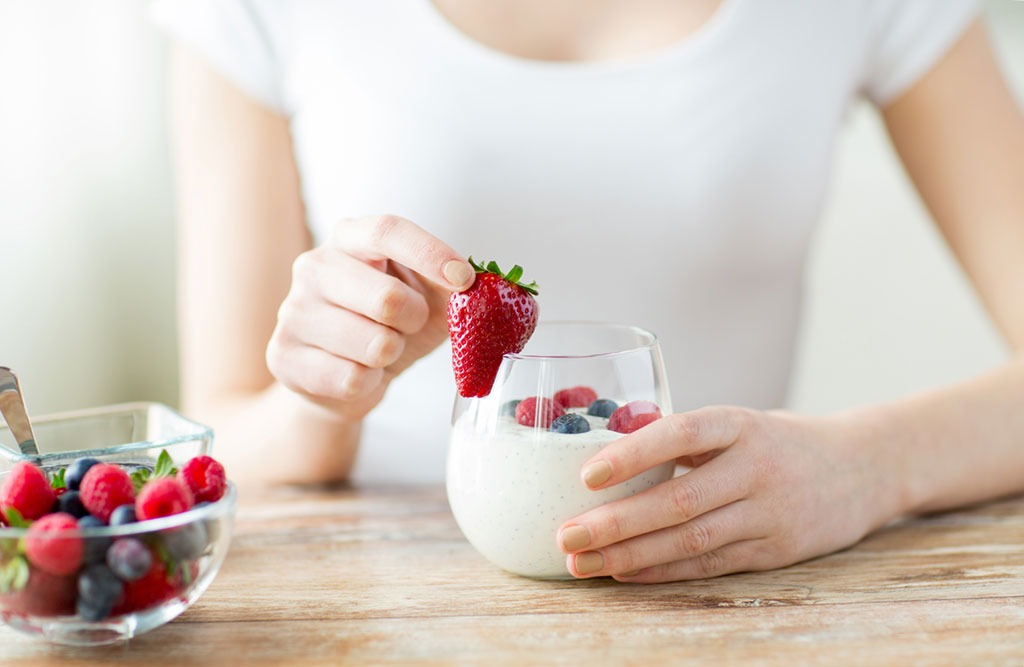
Jorge E. Chavarro, M.D., Sc.D., an assistant professor of nutrition and epidemiology at the Harvard School of Public Health and author of The Fertility Diet, followed 18,000 participants in the long-running Harvard Nurses’ Health Study who were trying to get pregnant. Among his findings are these critical food tips for fertility.
GET YOUR PROTEIN FROM PLANTS
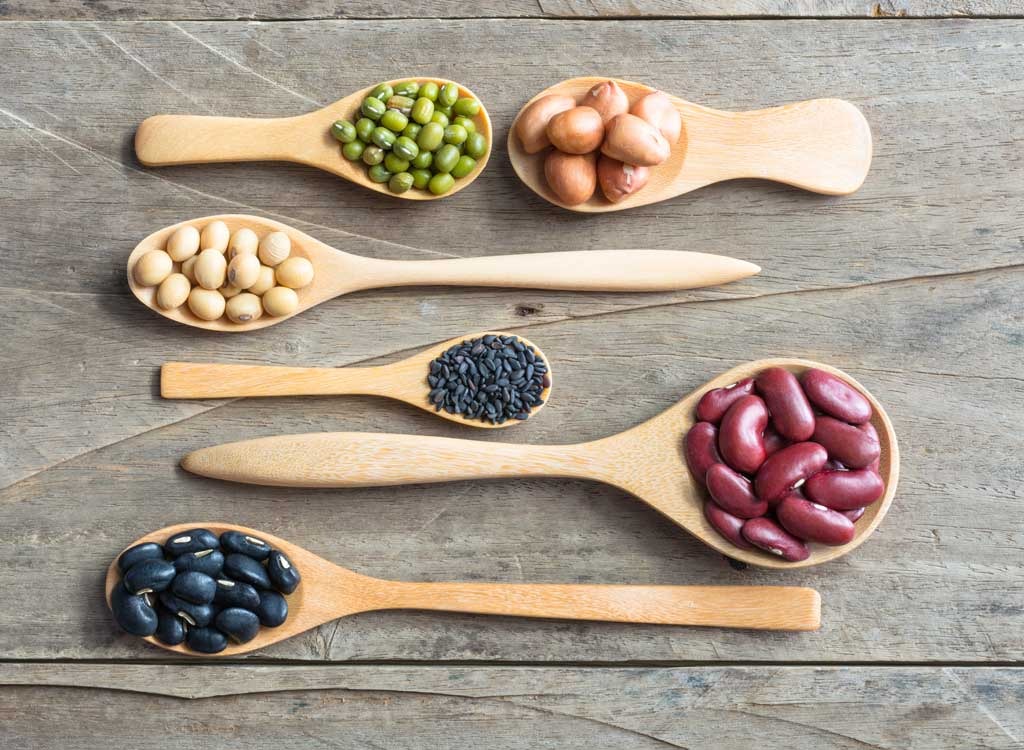
Foods that elevate insulin levels contribute to fertility-zapping ovulatory disorders. “Not all proteins are digested the same,” Chavarro explains. “Animal proteins require more insulin to be secreted.” Beef and poultry, specifically, were associated with infertility. The good news: Replacing 25 grams of animal protein with 25 grams of plant protein (beans, peas, nuts) was related to a 50 percent lower risk of ovulatory infertility. Don’t miss these 26 Best Vegetarian Sources of Protein for a better idea of what to choose.
BAN TRANS FATS

Found primarily in packaged baked and fried foods, trans fats elevate insulin levels. Monounsaturated fats, like those found in avocados, nuts and olive oil, are associated with a decreased risk of infertility.
AVOID SUGAR SPIKES

Quickly digested carbs, such as white bread, potatoes and soda, spike your blood sugar, promoting insulin secretion. Carolyn Dean, M.D., N.D., dislikes “white” carbs for another reason: They encourage yeast overgrowth. “Yeast toxins can cross-react with hormones necessary for pregnancy, blocking their receptor sites,” she says. Dean recommends eliminating sugar and white flour, eating fiber-rich, slowly digested complex carbohydrates and incorporating plain yogurt or probiotic supplements to encourage the growth of healthy gastrointestinal bacteria, which favorably compete with yeast toxins for space. Speaking of, these are the 18 Best Probiotic Foods for a Healthy Gut!
LIMIT LOW-FAT DAIRY

Chavarro’s research found that low-fat dairy foods appear to heighten the risk of infertility, while women who consumed one daily serving of whole milk or full-fat ice cream were 27 percent less likely to experience infertility.
TEA UP
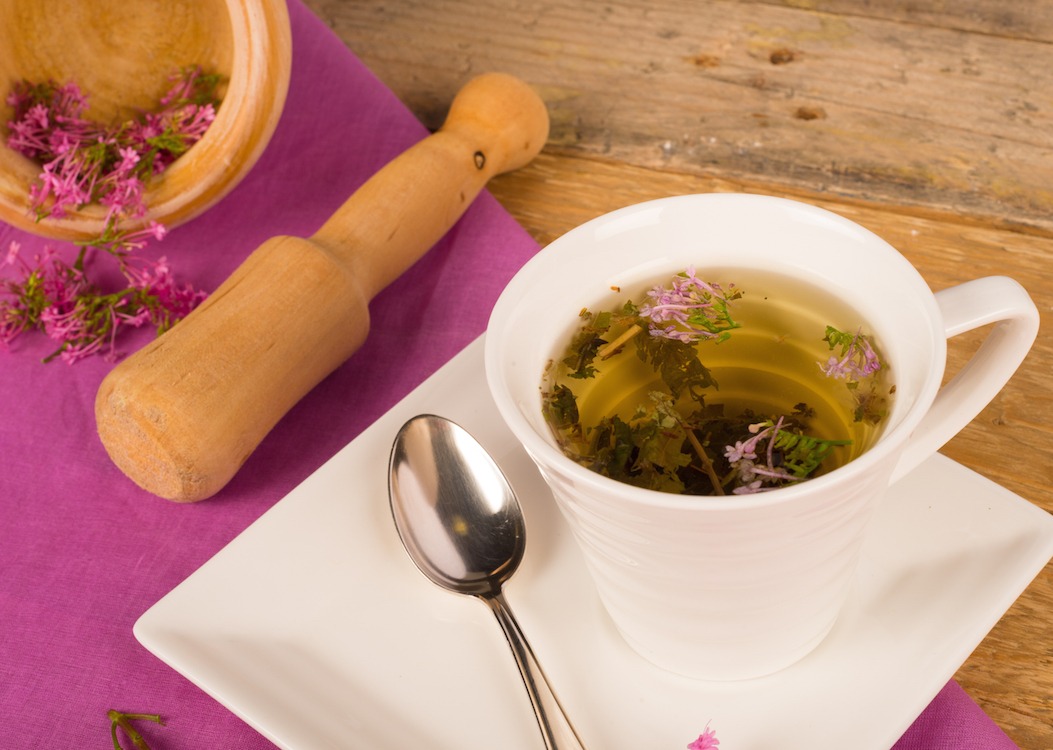
A study published in the American Journal of Public Health found that tea drinkers doubled their odds of conceiving, perhaps because of their antioxidant content. Note: Blakeway advises avoiding red raspberry leaf tea because it is linked to miscarriage.
Clean Up Your Act

Every day, we’re exposed to hundreds of chemicals, from our shampoo to our water bottles to car exhaust. (Seriously. Have you seen this list of 23 Worst Food Additives in America?) Research has found that many of these products contain endocrine-disrupting compounds called xenoestrogens (bisphenol-A, or BPA, and phthalates are two examples), which mimic estrogen in the body, meddling with the body’s sensitive hormonal milieu by blocking real estrogen from doing its work. High blood levels of the chemicals used in nonstick cookware and waterproof clothing have been shown to significantly increase a woman’s risk of infertility.
David suggests eating organic foods and keeping your home as green as possible: Avoid microwaving food in plastic containers, steer clear of cosmetics containing phthalates or parabens and include dietary phytoestrogens, such as flax seed or soy, in your diet; they’ll bind to the estrogen receptor sites before xenoestrogens get the chance.
Category 2: Live This Lifestyle

“Approximately 50 percent of women who are undergoing IVF don’t need it,” says Sami S. David, M.D., assistant professor of reproductive medicine at Mount Sinai Medical Center in New York City and author of Making Babies: A Proven 3-Month Program for Maximum Fertility. “Lifestyle is a huge factor,” adds David, one of a growing number of practitioners who are advocating a blend of holistic care with mainstream reproductive endocrinology.
STRESS LESS

Many experts believe chronic stress has hijacked our primitive fight-or-flight response, causing the pituitary gland to unnecessarily release endorphins that suppress reproductive hormones. A landmark Harvard Medical School study found that women who participated in a 10-week mind-body program, including relaxation and yoga, were nearly three times more likely to conceive than women who didn’t take part. The research was lead by Alice Domar, Ph.D., executive director of the Domar Center for Mind/Body Health at Boston IVF and author of Conquering Infertility.
STRIKE A POSE

“Yoga reduces the stress hormone cortisol and induces the relaxation response,” explains Tami Quinn, a registered yoga teacher and cofounder of the Chicago-based holistic fertility center Pulling Down the Moon. Specific poses, such as Viparita Karani (Legs up the Wall), can also increase blood flow to the ovaries and uterus, potentially thickening the uterine lining; this can aid with embryo implantation. Stick with gentle hatha or restorative yoga as an ideal choice.
PICTURE THIS

Guided imagery is a therapeutic technique that allows you to enter a deeply relaxed state of mind, then focuses your attention on specific images that work to calm you. Mind-body expert Bernie Siegel, M.D., author of Love, Medicine & Miracles, suggests tailoring this brain game to your conception goals: “Like rehearsing for a performance, when you visualize your egg being fertilized, your chemistry changes and the body responds as if fertilization is happening.”
CONSIDER ACUPUNCTURE

A 2008 British Medical Journal study found that women who underwent IVF and acupuncture together were 65 percent more likely to conceive than women who only underwent IVF. According to acupuncturist-herbalist Jill Blakeway L.Ac., it works by promoting uterine blood flow. It can also quiet post-IVF uterine contractions, encouraging implantation and decrease levels of cortisol (a “stress hormone”) and prolactin, both of which are known to disrupt reproductive function.
AVOID WEIGHT EXTREMES
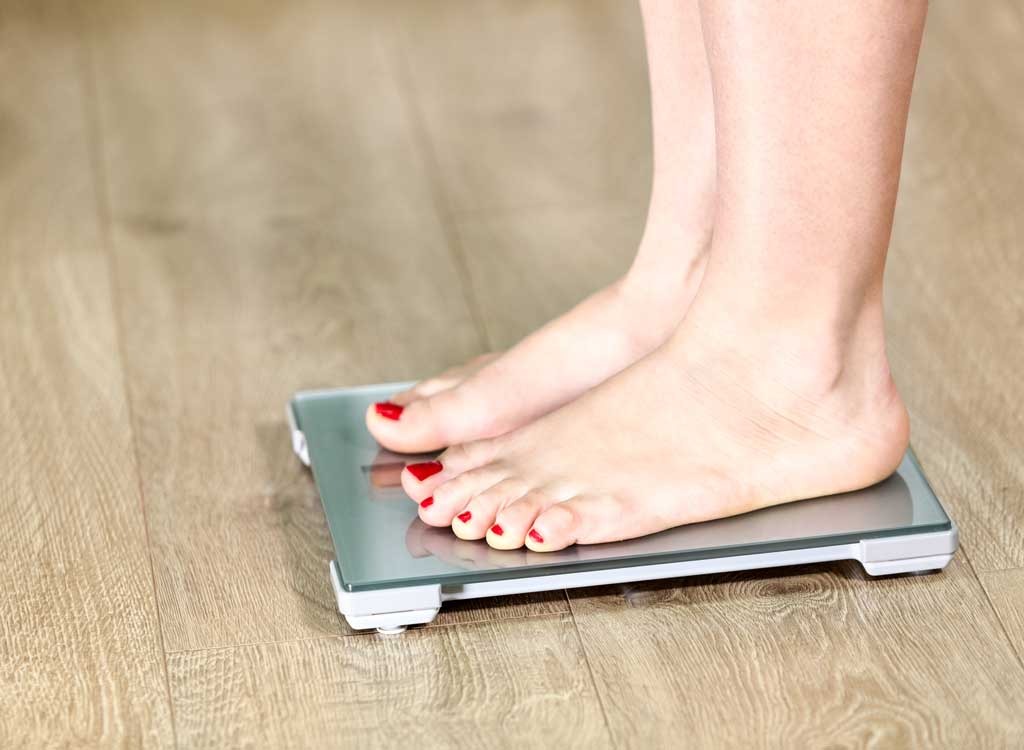
According to the American Society for Reproductive Medicine, 12 percent of female infertility cases are a result of a woman weighing too little or too much. That’s because estrogen is produced in fat cells. Too little body fat and the body can’t produce enough estrogen to fuel ovulation; too much and the body reacts as if it were on birth control. Gaining just six to eight pounds (if underweight) or losing 10 to 14 pounds (if overweight) may be enough to boost your baby-making odds. Here are 30 Easiest Ways to Lose Weight After 30.
EXERCISE IN MODERATION

Similarly, it’s important to strike a balance between overdoing it and not doing enough on the exercise front. David says gentle exercises like walking, swimming and yoga promote blood supply to the pelvic region and reduce stress. But he recommends avoiding “workout intensities that elicit an endorphin rush, as this can suppress egg and ovarian hormone production.” A landmark study in Obstetrics & Gynecology found that IVF patients who reported exercising four hours or more per week for one to nine years were 40 percent less likely to have a live birth than women who did not exercise. Women are advised not to work out while undergoing IVF treatment because doing so could harm the ovaries, but a study that followed 118 IVF patients from June 2009 to March 2010 found that 12 percent of them were ignoring the exercise warnings from their doctors.
Category 3: Be Smart With Supplements

Certain supplements and herbs may help you on your conception quest.
GET YOUR MAGNESIUM

The mineral is thought to keep the fallopian tubes relaxed, facilitating the travel of sperm to meet egg. In IVF, it can calm the uterus to encourage implantation; during pregnancy, it may help prevent miscarriage. Dean, who is the medical director of the Nutritional Magnesium Association, suggests 750 milligrams daily. The mineral is also found in seaweed, cacao, leafy greens, nuts and seeds. We love magnesium so much at Eat This, Not That! that we actually compiled this list of 19 Magnesium Tips You Didn’t Know You Needed!
BE FISHY
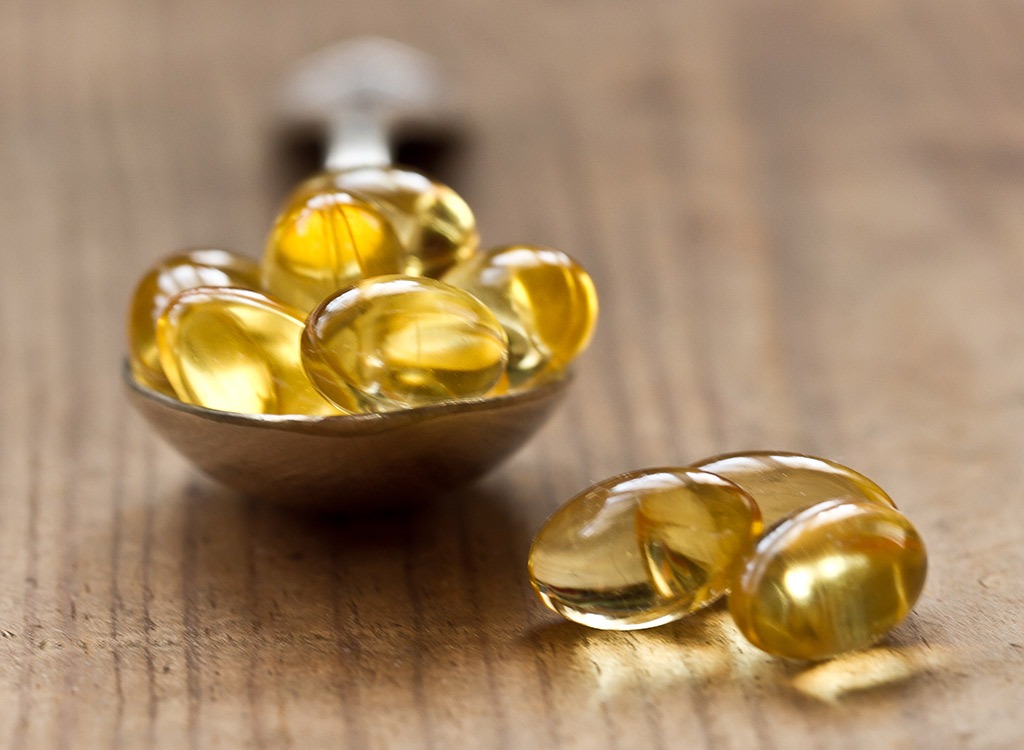
Holistic nutritionist Sally Kravich, M.S., CNHP, recommends fish oil (800-plus milligrams EPA and 500-plus milligrams DHA per day) to balance your hormones and encourage healthy fetal brain development.
LEARN ABOUT HELPFUL HERBS
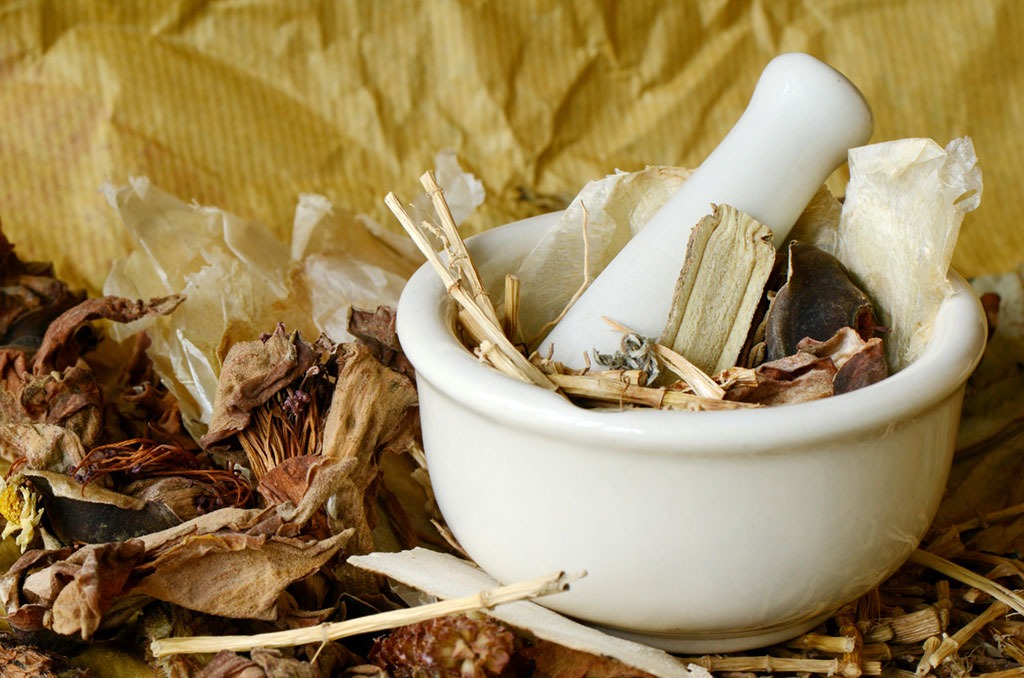
Chinese herbs are often used in conjunction with acupuncture to address elevated follicle stimulating hormone (FSH) levels, repeat miscarriage, unexplained infertility and PCOS, says Oakland, Calif.-based acupuncturist and herbalist Zoe Cohen, L.Ac. Single herbs are rarely prescribed; instead, multicomponent formulas are tailored for each patient based on her diagnosis. Herbs traditionally sold raw, dry or as powder are available in pill or tincture form. Cohen explains that herbs can be deceptively powerful and may interact with fertility drugs, so it is crucial to work with a licensed herbalist experienced in treating infertility.

